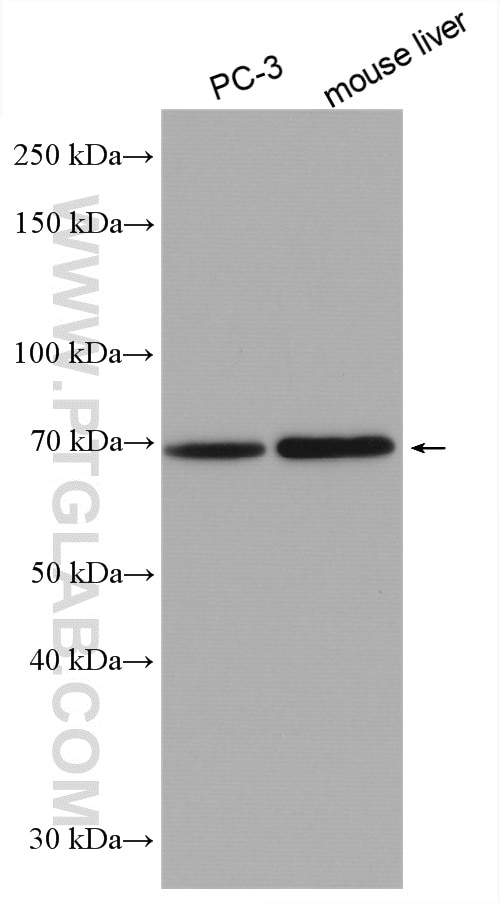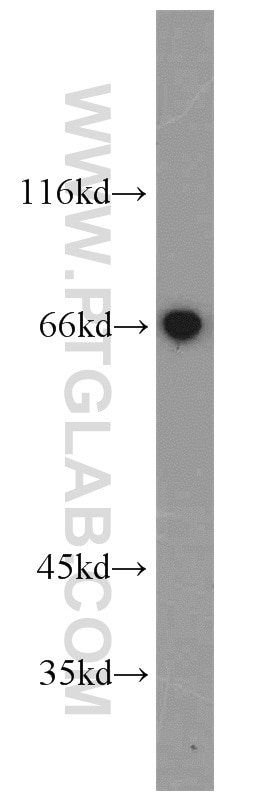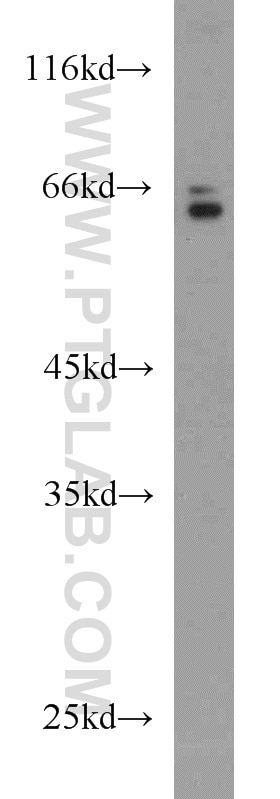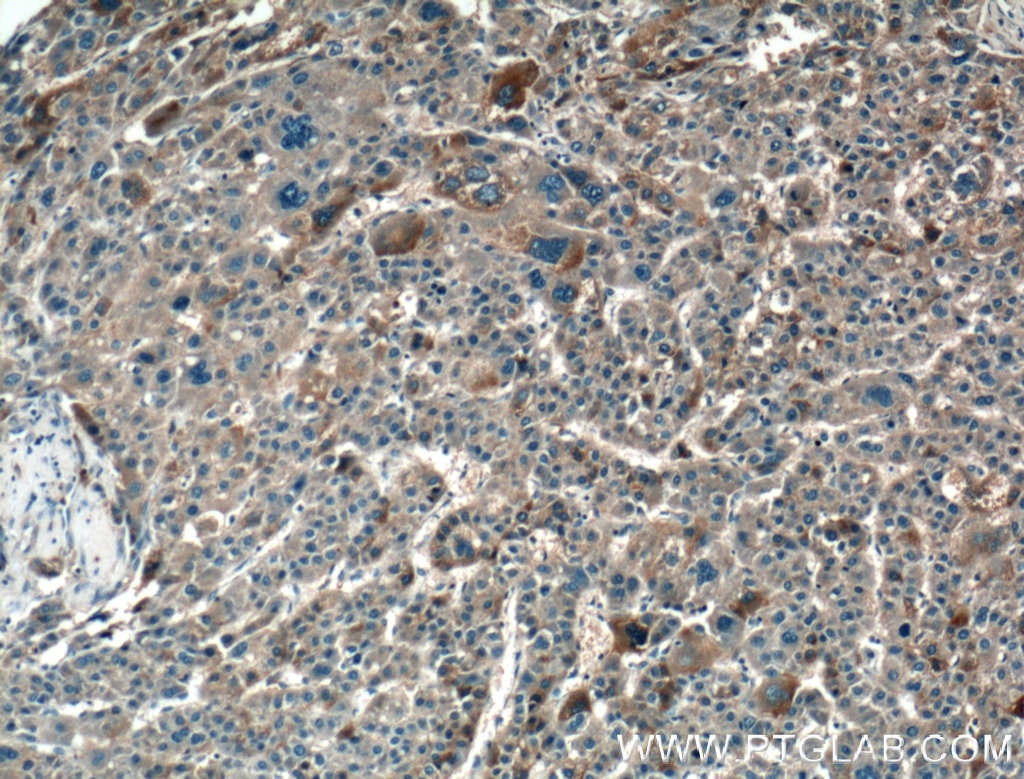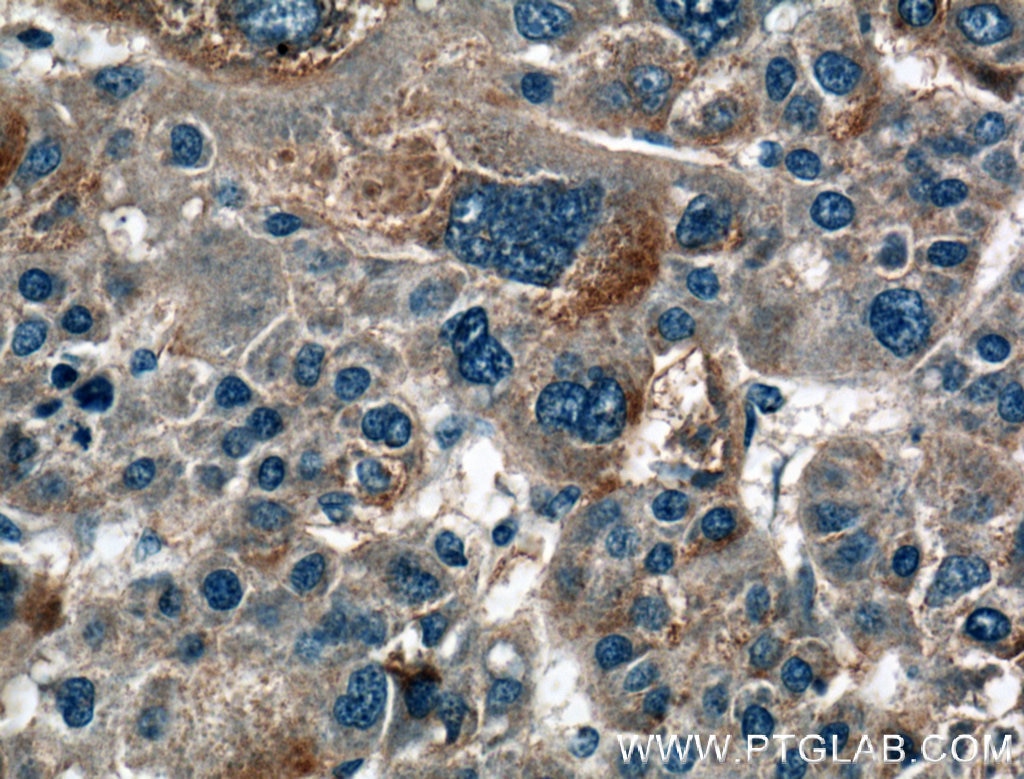Tested Applications
| Positive WB detected in | PC-3 cells, L02 cells, mouse liver tissue |
| Positive IHC detected in | human liver cancer tissue Note: suggested antigen retrieval with TE buffer pH 9.0; (*) Alternatively, antigen retrieval may be performed with citrate buffer pH 6.0 |
Recommended dilution
| Application | Dilution |
|---|---|
| Western Blot (WB) | WB : 1:500-1:1000 |
| Immunohistochemistry (IHC) | IHC : 1:100-1:400 |
| It is recommended that this reagent should be titrated in each testing system to obtain optimal results. | |
| Sample-dependent, Check data in validation data gallery. | |
Published Applications
| KD/KO | See 1 publications below |
| WB | See 6 publications below |
| IHC | See 3 publications below |
| FC | See 1 publications below |
Product Information
15609-1-AP targets HAS3 in WB, FC, IHC, ELISA applications and shows reactivity with human, mouse, rat samples.
| Tested Reactivity | human, mouse, rat |
| Cited Reactivity | human, mouse |
| Host / Isotype | Rabbit / IgG |
| Class | Polyclonal |
| Type | Antibody |
| Immunogen | HAS3 fusion protein Ag7999 Predict reactive species |
| Full Name | hyaluronan synthase 3 |
| Calculated Molecular Weight | 63 kDa |
| Observed Molecular Weight | 63 kDa |
| GenBank Accession Number | BC021853 |
| Gene Symbol | HAS3 |
| Gene ID (NCBI) | 3038 |
| RRID | AB_2232886 |
| Conjugate | Unconjugated |
| Form | Liquid |
| Purification Method | Antigen affinity purification |
| UNIPROT ID | O00219 |
| Storage Buffer | PBS with 0.02% sodium azide and 50% glycerol , pH 7.3 |
| Storage Conditions | Store at -20°C. Stable for one year after shipment. Aliquoting is unnecessary for -20oC storage. 20ul sizes contain 0.1% BSA. |
Background Information
HAS3(hyaluronan synthase 3) belongs to the NodC/HAS family, which are widely expressed in human tissues and appear to function in embryogenesis, wound healing and other processes associated with cellular proliferation and migration(PMID:14566823). HAS3 is involved in the synthesis of the unbranched glycosaminoglycan hyaluronan, or hyaluronic acid, which is a major constituent of the extracellular matrix. It may play a role in the progression of colon cancer and, as such, may provide novel targets for diagnostic and therapeutic interventions(PMID:14566823). It has 2 isoforms produced by alternative splicing and the protein has a glycosylation site.
Protocols
| Product Specific Protocols | |
|---|---|
| WB protocol for HAS3 antibody 15609-1-AP | Download protocol |
| IHC protocol for HAS3 antibody 15609-1-AP | Download protocol |
| Standard Protocols | |
|---|---|
| Click here to view our Standard Protocols |
Publications
| Species | Application | Title |
|---|---|---|
J Pineal Res Melatonin inhibits the stemness of head and neck squamous cell carcinoma by modulating HA synthesis via the FOSL1/HAS3 axis | ||
Int J Mol Sci Elevation of Hyaluronan Synthase by Magnesium Supplementation Mediated through the Activation of GSK3 and CREB in Human Keratinocyte-Derived HaCaT Cells. | ||
Cancers (Basel) C1q-HA Matrix Regulates the Local Synthesis of Hyaluronan in Malignant Pleural Mesothelioma by Modulating HAS3 Expression. | ||
Mol Med Rep miR‑29a‑3p represses proliferation and metastasis of gastric cancer cells via attenuating HAS3 levels.
|
